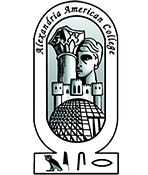Required Immunizations
Immunization is one of the most effective tools for the prevention of most infectious diseases of childhood. According to the recommendations of the World Health Organization and in line with the policy of Ministry of Health of Egypt, vaccinations against certain diseases are required for every child. These include vaccination against the following:
1. Poliomyelitis:
Poliomyelitis is an infectious disease, which has been eliminated from Egypt since 2005 but is still present in some parts of the world and Egypt is at risk of its importation and so it is essential to ensure immunity of every child. There are two types of vaccines one given orally (OPV) and the other given by injection (IPV). Both are very effective. The one commonly used in Egypt is the OPV. The recommended schedule is a dose at birth called zero dose and at least 5 doses more at ages 2, 4, 6, 12 & 18 months. It is one of the safest vaccines and it is recommended to give children under 5 years extra doses should there be any National campaigns.
2. Diphtheria, Tetanus and Pertussis (Whooping cough):
The occurrence of these 3 diseases has decreased considerably as a result of vaccination against them for the past 5 decades. The vaccine that protects against them is termed DTP vaccine. It is given as an injection. The recommended doses are at ages 2, 4, 6 months and then two booster doses at age 18 months and 4-6 years.
3. Measles, Mumps and Rubella (German Measles):
These 3 diseases are highly communicable and used to be among the diseases that spread in schools. Their occurrence decreased after the campaigns to eliminate them. Each child should receive two doses. To be effective, the first doses should be given before 12 months. The second dose is recommended at age of 4-6 years but could be given at age 18 months.
4. Viral Hepatitis:
There are several distinct types of viruses that can infect the liver. They are prevalent in Egypt. Two of these have effective vaccines that can prevent them namely Hepatitis B, which is essentially transmitted by injection, and Hepatitis A, which is transmitted through contaminated food, or drink virus. The two vaccines against them are given by injection:
a. Hepatitis B vaccine: Three doses are required one at birth or very soon after, the second dose after one month and the third after 5 months of the second.
b. Hepatitis A vaccine: Not yet compulsory in Egypt but strongly recommended. Two doses one at the age of 12 months and the other after at least 6 months.
5. Tuberculosis:
There is a vaccine (BCG), which is compulsory in Egypt and is given soon after birth, (within one month) to give maximum protection. If not given before 12 months it will not be of demonstrable benefit.
Other vaccines:
The World Health Organization recommends the following additional vaccines:
1. Haemophilus Influenzae type b vaccine:
This is a vaccine that protects against a type of meningitis that occurs in very young children (mostly under 2 years). It is not related to Influenza. Its vaccine is usually combined with DTP and is given at the same ages (2, 4, 6 months and the booster at 18 months).
2. Influenza vaccine:
Influenza is a very highly communicable disease, which can cause epidemics. There is a vaccine against influenza whose composition changes every few years. One annual dose is recommended for school children to be given before the season of Influenza.
3. Meningitis vaccine:
Sometimes meningitis spreads and can cause outbreaks. There is a very safe vaccine, which can prevent it. It is not effective before the age of 2 years. It is given as one dose, which gives protection for at least 2 years.









